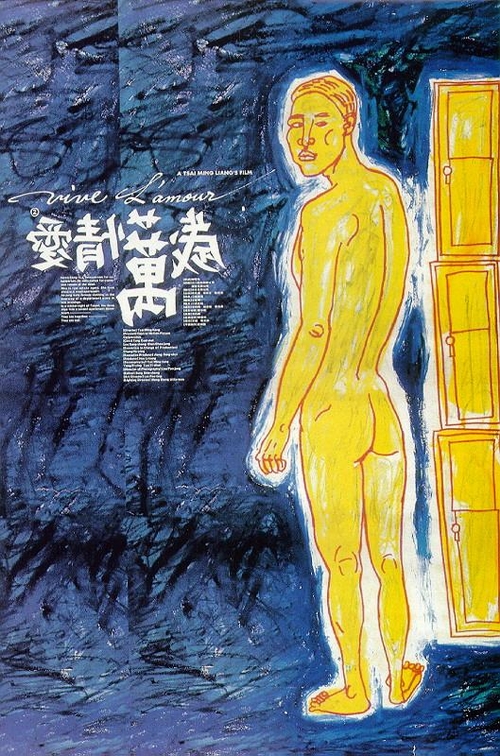
Naturally, the topic turns to Tsai Ming-liang’s films. Tsai is one of the most unique “Second New Wave” film directors of Taiwanese Cinema. None of his films was permitted to release in Malaysia although he was born there. His astonishing longshots with fixed angle are peeping at the emotional demons of the human world thoroughly. The characters in his films were set as some hollow bodies with only desires, so the rational logic was isolated completely. And the gaze with an unbearable long time leaded to a forced thinking by the viewers.
After a film premier during an international film festival, a foreign viewer asked Tsai Ming-liang directly: “What is the internal meaning of the water in your film?” However the director didn’t answer definitely. We drink water once feel thirsty. “Water”, such a normal element that we always ignore in our daily life, is defined as the critical expression method throughout his films. It may represent desire, lust or anything else, self-cycling endlessly and eternally, glutting in every creature’s body and even the whole world.
*The film criticism was written by Simplified Chinese at first (which is my mother tongue), then I translated into English for your reading convenience. And down there is the original version.
这么一来话题又转移到了蔡明亮的电影。蔡明亮是台湾新浪潮中最独特的一位导演,出生于马来西亚的他竟没有一部作品能够在本国上映。他用惊人的固定视角长镜头,洞彻窥视着人类世界的情感魔障;他的电影中的人,仅是被注入欲望的躯体,彻底隔绝了理性逻辑;长时间的凝视与舞台化的表达导致于强迫性思考。
在某次国际影展的放映环节后,一个外国观众直截了当地问蔡明亮:“您作品中的水代表着什么?”他并没有给出明确的答案。正如人渴了就要喝水,“水”这个普通到被忽略的常态元素,在蔡明亮的电影中却被定义为了表达手段:它可以是渴望、情欲或任何东西,它无穷尽循环往复,充斥在每具身体乃至整个世界。